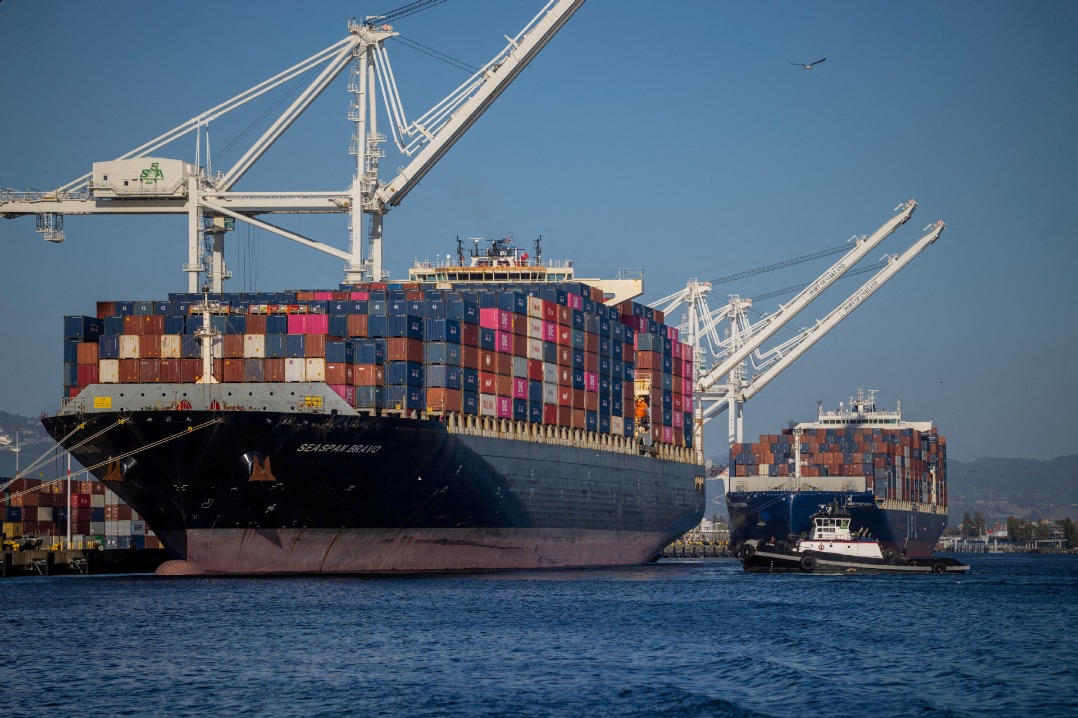UK's fiery rhetoric has no basis in reality


United Kingdom Foreign Secretary Liz Truss delivered a highly provocative speech at a recent London event during which she took aim at both Russia and China.
The speech sought to frame global politics as a zero-sum ideological struggle. Truss also called for UK and NATO involvement in the Taiwan question.
British foreign policy since Brexit has been premised on an effective delusion-that is, the nostalgia of a long-gone era whereby Britannia ruled the waves and wielded the power of a global empire, which allowed it to impose its will on others.
China, of course, is no stranger to that legacy. With the Opium Wars of the mid-19th century, Britain opened what Chinese people understand as the "century of humiliation", when European powers learned they could use their growing military might to force political and economic concessions on a declining Qing Dynasty (1644-1911).
Truss clearly believes that London is capable of doing similar things to China again, and sounds hungry for confrontation with Beijing.
But none of this fiery rhetoric has any basis in reality. The world has changed, and circumstances are no longer favorable for the UK. Britain's withdrawal from the European Union was a self-inflicted wound that has had a huge detrimental impact on the economy across the board. It has created supply and labor shortages and added to burgeoning inflation and severely hurt services. This has coupled with surging energy prices and shrinking standards of living.
The truth is that after Brexit, Britain's economic relationship with China is of critical importance, and UK Prime Minister Boris Johnson had long understood this and made it clear. The UK cannot afford to distance itself from the largest consumer market and trading nation on Earth.
However, the prime minister is increasingly struggling for influence with ultra-hawks within the Conservative Party who are attempting to mold Brexit into a broader ideological and civilizational struggle in the name of Anglophone exceptionalism.
These people, such as Foreign Secretary Truss, do not base Britain's economic and trade interests on empirical realities, but see them as an extension of identity politics and imperial nostalgia. They argue that Britain should be primarily trading with the nations of the Anglosphere (Australia, Canada, New Zealand and the United States) as well as India, toward which Britain also has post-colonial nostalgia, and not on the actual merits of what these countries can contribute to Britain.
For example, according to House of Commons research, Britain's free trade agreement with Australia will only increase GDP by 0.08 percent per year, illustrating the bizarre decision-making of the British government, whereas China, which has bilateral trade with Britain of£100 billion per year, is seemingly off limits.
If it wasn't clear already, post-Brexit Britain is harboring a foreign policy that is based purely on nationalistic sentiment and imperial good feeling, and as a result has no coherent grasp of the country's strategic realities or national interest. This leads to self-destructive decision-making.
Despite the deep interdependence and mutual self-interest of the Sino-British relationship, there is nothing that could be more offensive to the Chinese than a Britain role-playing its imperial past and believing that it has the right to bring China to heel. There is a political will in Beijing that history won't be allowed to repeat itself.
China is the world's second-largest economy with a GDP estimated at over $17 trillion, while the UK is a stagnating country whose future prosperity will hinge upon access to its markets.
If Britain is to be truly "global", as its government markets it as being, then the sensible choice is to step back from the brink, regain control of its foreign policy from the US, and engage with China on pragmatic, realistic and independent terms. Fanatical Cold War chauvinism will undermine decades' worth of progress.
The author is a British political and international relations analyst.





























